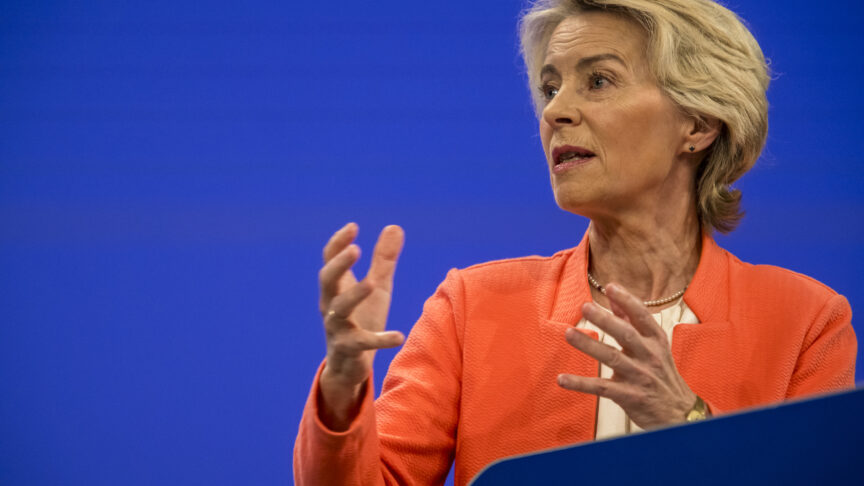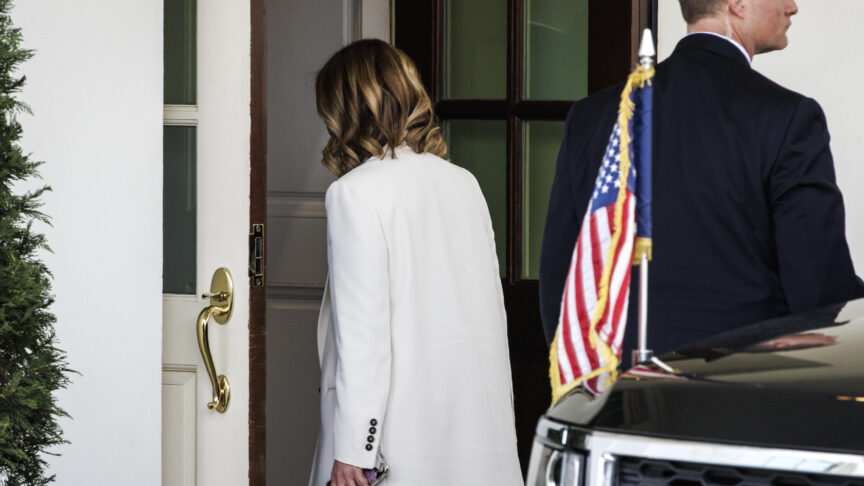Why Russia’s relationship with India matters for Europe
Modi and Putin publicly reaffirmed the longstanding bond between India and Russia yesterday, even as the West continues to seek to isolate Russia.
Yesterday, Narendra Modi and Vladimir Putin publicly reaffirmed the longstanding bond between India and Russia – even as the West continues to seek to isolate Russia in response to the annexation of Crimea and destabilisation of eastern Ukraine. At an annual bilateral summit in New Delhi, Modi and Putin signed a series of big deals: the state-owned Russian company Rosatom will build 12 nuclear reactors in India; Rosneft agreed to a 10-year, fixed-price contract to provide oil to India; and the two countries will co-operate on the production of 400 Ka-226 military helicopters. The meeting between Modi and Putin illustrated the strength of the relationship between India and Russia – and its potential to undermine the impact of Western sanctions against Russia.
The meeting between Modi and Putin illustrated the strength of the relationship between India and Russia.
Since the annexation of Crimea, there has been much discussion of the increasingly close relationship between Russia and China. In May, Russia agreed to a $400 billion deal to build pipelines supplying gas to China through the so-called eastern route. Then, in November, Moscow and Beijing signed another agreement to supply gas from western Siberia to China through the so-called western route. The fear is that China could undermine the impact of Western sanctions by “backfilling” – in particular, by providing Russia with an alternative market for its energy exports. Since the Ukraine crisis began, China and Russia have also discussed creating an alternative to SWIFT, the messaging service used by banks.
There has, however, been comparatively little discussion so far of the relationship between Russia and India, even though it is in some ways as important as the one between Russia and China. It certainly has a longer history, dating back to the Cold War when the two countries were de facto allies. This quasi-alliance, which was based on ideological, political and security considerations, was then formalised in the 1971 Treaty of Peace of Friendship. India was particularly dependent on Russia, which many Indians saw as the only other power on which they could depend (for example, in the United Nations Security Council). For decades, there was intense interaction between elites in the defence, scientific and industrial sectors of the two countries, and the Indian political class was decidedly Slavophile.
Since Vladimir Putin took over as Russian president in 2000, the relationship [with India] has to some extent been reinvented and reinvigorated.
Indeed, the relationship was so strong that the collapse of the Soviet Union was a strategic shock for India. The Indian analyst C. Raja Mohan has gone so far as to write that “nothing was as traumatic for the Indian leadership and its foreign policy elite than the collapse of the Soviet Union”.[1] The Indian foreign policy establishment subsequently went into what he calls “mourning”. During the Yeltsin era, relations between India and Russia deteriorated as India sought to adjust to the post-Cold War world, but since Vladimir Putin took over as Russian president in 2000, the relationship has to some extent been reinvented and reinvigorated. There remains a depth and warmth in the relationship between the two countries. In the summer, Modi is supposed to have said that “every child” in India knew Russia was India’s “greatest friend”.
In particular, there is an especially close arms transfer relationship going back to the first sale of Soviet MiG 21s in 1963. Arms transfers were also a key element in the re-establishment of the close relationship between India and Russia after the end of Cold War. In the mid-1990s, Russia offered India a full range of advanced weapons, including the Su-30 fighter. According to the Stockholm International Peace Research Institute, India – now the biggest buyer of arms in the world – was the destination for 38 percent of Russia’s major weapons exports between 2009 and 2013 (12 percent went to China). During the same period, Russia supplied 75 percent of India’s imports of major weapons.[2] What began as a buyer-seller relationship is now evolving to include joint ventures to develop technology, such as a fifth-generation fighter jet.
Though some Europeans will balk at the idea, intensifying defence cooperation with India could help maximise the impact of sanctions against Russia.
Apart from energy, weapons are one of Russia’s few internationally competitive exports. It is therefore likely to seek to increase arms sales as a way to partially offset the loss of revenue from energy exports, which has been exacerbated by the fall in the oil price. India is likely to remain its most important customer. Thus, though some Europeans will balk at the idea, intensifying defence cooperation with India could help maximise the impact of sanctions against Russia. Although India is already increasingly buying weapons from the US and EU member states, there are limits to what the West is prepared to sell to it. For example, India buys Russian aircraft carriers and nuclear-powered submarines because Western countries are not prepared to share such advanced technology. “If the US offered them, we would happily take them!” says a former Indian diplomat.
As Alex Gabuev points out in a forthcoming ECFR publication, Russia is likely to seek to balance its growing dependence on China in the future by developing closer relationships with other Asian countries. Since the most natural partners – Japan and South Korea – are US treaty allies, Russia may have to concentrate on other Asian countries such as India. As such, India is likely to become even more important to Russia in future. If the West is going to prevent Russia’s relationship with India from undermining the impact of sanctions in the same way as it fears Russia’s relationship with China might, it needs to find ways to pry India and Russia apart. Defence cooperation with India – including arms exports – could be one way of doing that. Perhaps France could even sell India the two Mistral helicopter landing ships that Russia had ordered.
The European Council on Foreign Relations does not take collective positions. ECFR publications only represent the views of their individual authors.


